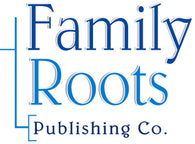
The German Element in the Northeast: Pennsylvania, New York, New Jersey & New England
The German Element in the Northeast: Pennsylvania, New York, New Jersey & New England; by Gustav Koerner. Translated and edited by Don Heinrich Tolzmann; xiv + 256 pp; Paperback; Published: 2010; ISBN: 9780806354989; Item # CF9633
In 1880 Gustav Koerner (1809-96), one-time Lieutenant-Governor of Illinois and confidant of Abraham Lincoln, published a comprehensive history of Germans in America entitled Das deutsche Element in den Vereinigten Staaten von Nordamerika, 1818-48. For the work at hand, The German Element in the Northeast, Don Heinrich Tolzmann translated and edited selected chapters from Koerner covering the states of Pennsylvania, New York, New Jersey, and New England. Dr. Tolzmann has added extensive annotations that further explain the text and provide references to additional sources as well.
Disinclined to write a history of German immigration to the United States, Gustav Koerner set about to describe and assess the 19th-century contributions—his coverage substantially exceeded 1848—of Germans to American life and society. In this context he considers the role of the German language, social life, religion, organizations like the Pennsylvania German society, German newspapers and booksellers, Germans in politics, the Pittsburgh [German] Convention of 1837, and so forth—especially in the early chapters’ focus on the older Pennsylvania-German community.
For the most part, however—and genealogists are the beneficiaries--the work portrays the German element through the lives of individuals. Accordingly, Koerner offers a wealth of biographical information about people such as
- Heinrich Bohlen
- Johann Georg Rapp
- Franz Josef Grund
- Ernst Ludwig Kosenitz
- Bishop Johann N. Neumann
- Franz Martin Drexel
- August Belmont
- Anton Eickhoff
- Magnus Gross
- Albert Bierstadt
- Philipp Dorschheimer
- Dr. Friedrich Heinrich Quitmann
- and many others.
Even better, researchers will find additional comments concerning Koerner’s subjects and their families and careers in Dr. Tolzmann’s detailed footnotes to the text itself, making this translation an important addition to the literature of 19th-century German-Americans.
